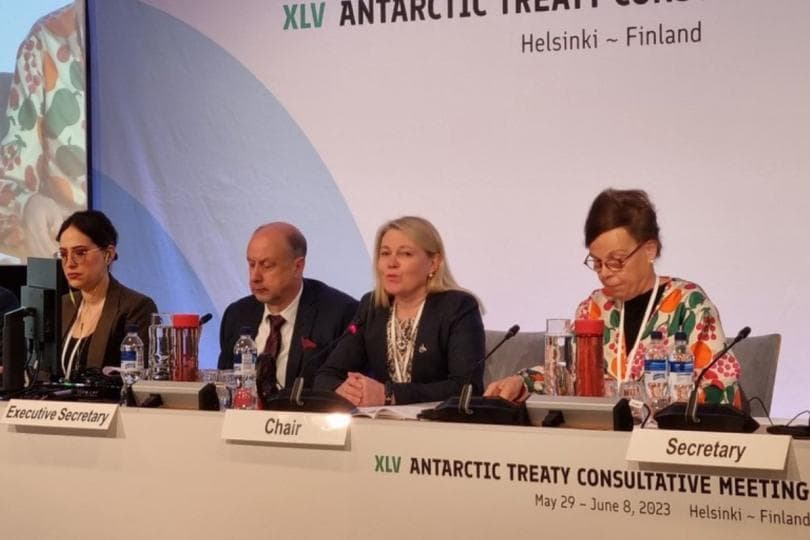India Leads the Charge in Antarctic Tourism Regulation

India, a Consultative Party to the Antarctic Treaty since 1983, has taken the role of facilitating the first-ever focused discussions on regulating tourism in Antarctica, underscoring its commitment to combating climate change. The 46th Antarctic Treaty Consultative Meeting (ATCM) and the 26th Committee for Environmental Protection (CEP) Meeting in Kochi, which took place in Kochi from May 20 to May 30, 2024, have attracted over 400+ delegates from nearly 56 countries. The event, inaugurated by Union Minister of Earth Sciences Kiren Rijiju, was organised by the National Centre for Polar and Ocean Research (NCPOR) in collaboration with the Antarctic Treaty Secretariat.
Secretary of the Ministry of Earth Sciences (MoES), M. Ravichandran, emphasised India's responsibility to preserve Antarctica's ecological integrity. India has established a legal framework through the Indian Antarctic Act of 2022, aligning its tourism regulations with international standards. This legislative move ensures that India's activities in Antarctica, including tourism, are conducted sustainably.
The formation of a dedicated working group on tourism regulation reflects global concerns over the environmental impact of increasing tourist activities in Antarctica. The surge in tourism has highlighted the need for a comprehensive framework to preserve this unique environment for future generations. By spearheading this initiative, India reinforces its commitment to international environmental stewardship and climate change mitigation. India's leadership at the ATCM also aims to foster international cooperation, providing a platform to discuss the induction of new consultative parties like Canada and Belarus. The country's robust history of Antarctic research and collaboration with nations such as Norway and the UK exemplifies its dedication to advancing scientific understanding and environmental protection.


































